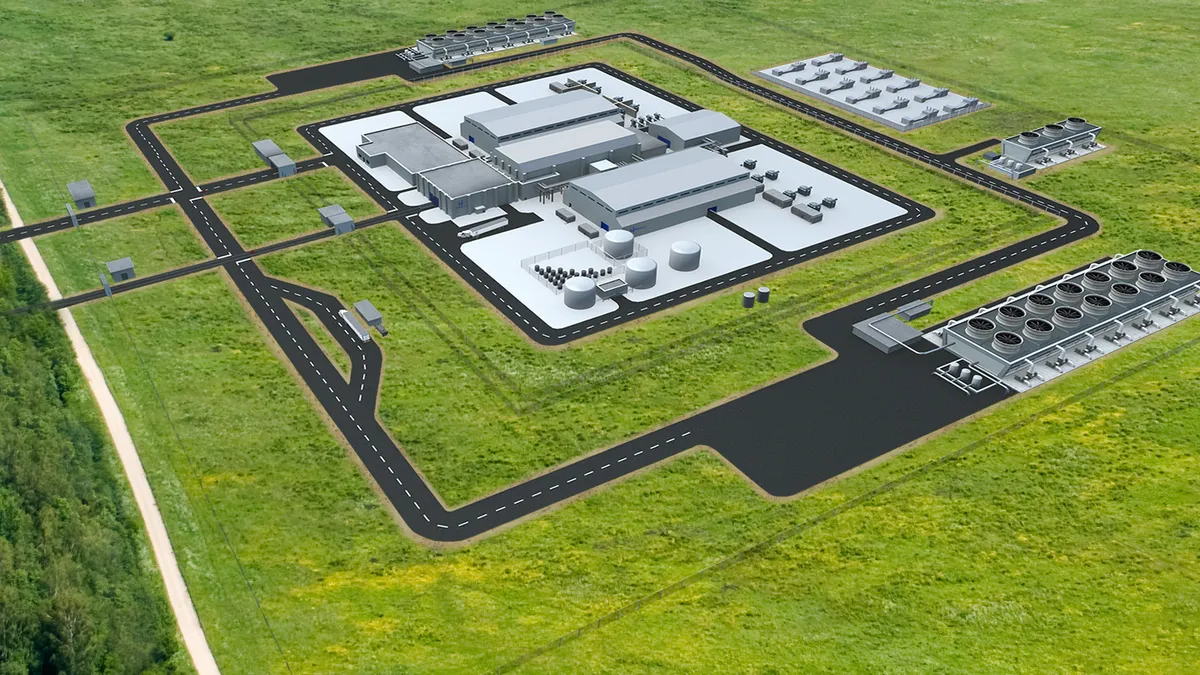Judi Greenwald is executive director of the Nuclear Innovation Alliance. Jeremy Harrell is the chief strategy officer of ClearPath. Jessica Lovering is the co-founder and executive director of Good Energy Collective.
The future of advanced nuclear energy is only just beginning. While the recent termination of the Carbon Free Power Project, or CFPP, by NuScale and the Utah Association of Municipal Power Systems, or UAMPS, is disappointing, it does not diminish the significance of the project’s accomplishments or the ability of advanced nuclear energy to be part of the climate solution moving forward.
The future of advanced nuclear energy in the United States and worldwide depends on a portfolio of technologies, investments and policies. Near-term projects like those by Kairos Power and Abilene Christian University are making strides toward deployment, with construction permit applications currently under review by the Nuclear Regulatory Commission. Furthermore, the NRC is either currently reviewing, or has already reviewed and approved, dozens of “topical reports” that resolve technical issues for companies looking to submit a license application in the future. Finally, the Department of Energy’s flagship program, the Advanced Reactor Demonstration Program, is set to unveil demonstration projects from TerraPower and X-energy by the late 2020s, with their construction permit applications submitted to the NRC this year.
The decision not to proceed with the CFPP, a collaboration between UAMPS and NuScale, was based on concerns about rising project costs. This first-of-a-kind project lacked sufficient subscriptions from UAMPS members. Given the UAMPS members’ limited ability to take on financial risk as a political subdivision of the State of Utah and not an investor-owned utility, halting the CFPP was a fiscally prudent decision for both parties, even with local communities’ continued support for the project.
It is important to note that rising project costs due to inflation, increased interest rates and other factors are plaguing energy projects of all types across the United States. The same week of the UAMPS termination, two large offshore wind projects were canceled in New Jersey, primarily due to rising costs. Just these two wind farms had a combined output of 2.2GW, more than four times the planned power output of the UAMPS project.
Despite this disappointment, the years of hard work and collaboration invested in the CFPP project were not in vain. The lessons learned, including the regulatory approvals by NuScale, are invaluable contributions that will pave the way for the next generation of nuclear reactor developers and international collaboration between the U.S. and countries looking for clean, flexible, reliable power. These lessons will benefit other public and private investors better positioned to take on first-mover risks.
Supporting advanced nuclear energy as a climate solution remains crucial. Although setbacks are inevitable, it is essential to view them in context. NuScale's technology received regulatory approval from the NRC. Other reactor developers are already in the process of applying to the NRC for regulatory approval as well. Parts of the expected submission of the CFPP’s Combined License application to build and operate their project can be repurposed for similar future projects, demonstrating the adaptability and versatility of advanced nuclear solutions.
Nuclear energy is not alone in facing these challenges. A recent survey by Lawrence Berkeley National Laboratory found that one-third of wind and solar projects proposed in the last five years have been canceled. For wind projects, the primary cause of cancelation was community opposition. The collective understanding that all these low-carbon technologies are essential in addressing climate change is vital, and setbacks should be seen as opportunities to learn and improve across the clean energy industry.
Continued public and private financial support for advanced nuclear energy research, development, demonstration and deployment is even more important now. This support not only fosters technological advancements but also contributes to broader climate and sustainability goals, supports national security, and helps strengthen diplomatic relations between the U.S. and its allies.
Recent bipartisan Congressional action has provided financial support for the domestic nuclear energy supply chain, established new tax incentives for new builds, and furthered the ability of entrepreneurs to demonstrate their designs commercially. However, more support is needed to level the playing field with competing energy technologies and accelerate deep decarbonization. This is key because advanced nuclear energy has the potential to create jobs and stimulate the U.S. economy while addressing the urgent need to reduce carbon emissions. By investing in this industry, we invest in a cleaner and more sustainable future.
The clean tech industry is at a pivotal moment, with exciting technological innovations along with challenging economic conditions. The advanced nuclear innovation ecosystem remains strong, with a portfolio of public and private investments, multiple technology pathways and diverse business models. As we navigate this array of opportunities and challenges, it is imperative to remember that the advancement of nuclear energy is not a luxury but a necessity in the fight against climate change. By learning from failures, capitalizing on successes and maintaining strong policy support, we can ensure that advanced nuclear energy continues to evolve, contributing significantly to a sustainable and low-carbon future at home and abroad.






















